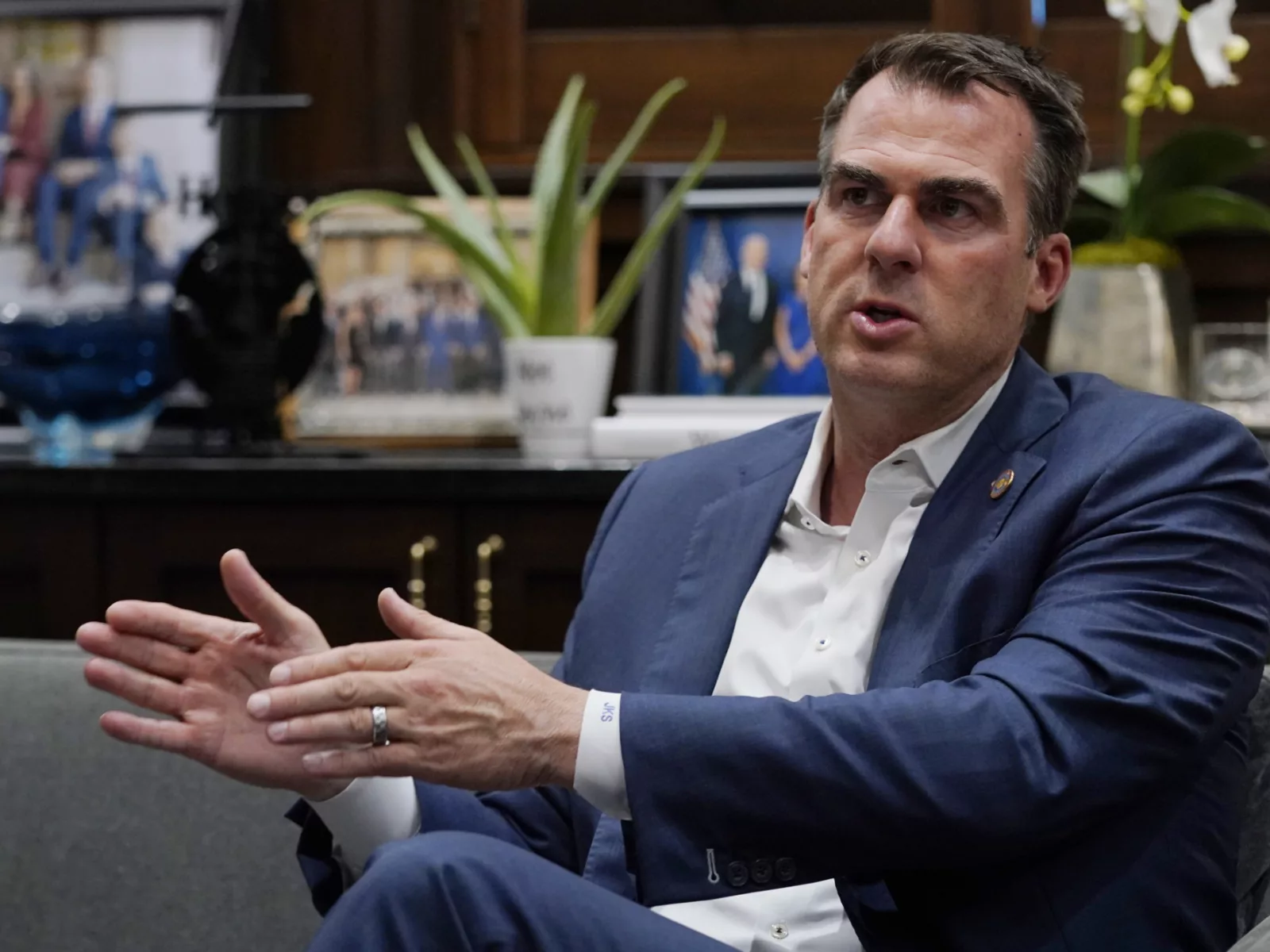Texas is big — and, on the topic of criminal justice reform, it contains multitudes. The Lone Star State has a reputation for hang-’em-high sheriffs but, at the same time, has been on the forefront of a movement to eliminate court fees in the juvenile justice system.
But you don’t see too many cliché characters based off the folks who pass those criminal justice reforms. That’s intentional — they work quietly. Even some of the state’s top activists get taken by surprise.
At Texas Appleseed, a nonprofit focused on policy reforms, advocates learned of a bill in the 2021 legislative session, advanced by the Office of Court Administration, that would eliminate all fees for civil proceedings, such as those for court administration, child support, and records management.
Sensing an opportunity, Brett Merfish, director of youth justice, and Martin Martinez, youth justice policy advocate at Texas Appleseed, began working with the Office of Court Administration to include juvenile court fees in the packet — which, in Texas, are also considered civil, not criminal, fees.
We explained that the primary goal of the juvenile system is to be rehabilitative, and that these fees weren’t serving that purpose — in fact, they were harming young people.Brett Merfish director of youth justice at Texas Appleseed
“We explained that the primary goal of the juvenile system is to be rehabilitative, and that these fees weren’t serving that purpose — in fact, they were harming young people,” Merfish says. “We shared research looking at various counties across the country, particularly Harris County in Texas, and they even had a story of a child who committed another offense to pay their fees.”
The Office of Court Administration was convinced. It included a selection of juvenile fees in the larger bill, which passed and was signed into law.
But not all juvenile court fees were eliminated in the new law. So this year, during the most recent legislative session, the Office of Court Administration came back with a follow-up bill to eliminate the remaining civil fees in Texas. Merfish and Martinez went through all remaining fees and made sure that those assessed to young people were included. In May, Gov. Greg Abbot signed that bill into law, putting an end to juvenile court fees in Texas.
“We didn’t want there to be any confusion,” Merfish says. “All the fees are gone.”
With the law’s passage, Texas joins a host of states — red, blue, and purple — that have enacted similar laws. In Arizona, Montana, Indiana, Washington, and Illinois, governors have signed bills that ban harmful costs from being imposed on young people and their families.
For the low-income youth who are disproportionately involved with the justice system, court fees add up, creating a financial burden that is unmanageable for many families. In fact, recent research suggests that young people with court debt may be more likely to be involved with the justice system in the future. While the study methods cannot determine causality, these findings may suggest that court debt fails to deter youth from committing future crimes. In some jurisdictions, the costs of collection exceed the revenue generated through court fines and fees.
“This session was impressive in passing some really strong legislation to eliminate juvenile court fees, particularly in red states,” says Cybele Kotonias, director of criminal justice at AV. “Legislators on both sides of the aisle recognize these are common sense reforms that will support accountability and rehabilitation in our juvenile justice systems.”
Juvenile Fee Relief in Texas
Texas’ new law repeals the remaining juvenile court fees in the state, including everything from probation fees to a range of fees parents might be expected to cover for attorneys, educational programs, transfers of their children between counties, and so on.
The bill enjoyed bipartisan support, with sponsorship from state Sen. Judith Zaffirini, a Democrat, and state Rep. Angelia Orr, a Republican.
“Texas Appleseed is intentional about building bipartisan partnerships in our advocacy work because the key to success in Texas is having support from both political parties,” Merfish explains. “We often start by ensuring we have support from the right and the left.”
The effort was also supported by the Policy Advocacy Clinic at the University of California, Berkeley School of Law (Berkeley Law), one partner in the Debt Free Justice campaign, which works to eliminate juvenile fines and fees nationally.
In some states, Debt Free Justice provides public support, building coalitions and staging rallies. But Cameron Clark, clinical supervising attorney at the Policy Advocacy Clinic, says that in Texas the campaign used a “Trojan horse strategy.” Throughout the legislative session, Clark and his colleagues supported Texas Appleseed’s efforts to include juvenile fees repeal with a larger, bipartisan court fee reform package. They also helped in negotiations with the bill’s sponsors and fielded questions from county clerk’s offices and public defenders to help prepare them for the further fee repeals contained in the bill.
Clark, who is from Texas, says the law’s passage is exciting.
“Texas is not the most safe or protective environment for youth who are navigating social and economic challenges and getting involved in the legal system,” Clark says. “It’s always great to be able to achieve relief for folks back home.”
Repealing Fees Across the Political Spectrum
Clark explains that Texas passing legislation is a benefit nationally. “For a lot of places, seeing that the South is taking action — and that there isn’t tremendous controversy — gives them a lot more comfort moving forward with what could be sweeping legislative packages.”
Debt Free Justice has supported work in several states that have already passed laws repealing juvenile fees.
For a lot of places, seeing that the South is taking action — and that there isn’t tremendous controversy — gives them a lot more comfort moving forward with what could be sweeping legislative packages.Cameron Clark clinical supervising attorney at the Policy Advocacy Clinic
Arizona, for example, enacted a law this year that not only ends all juvenile fees but also provides a petition-based mechanism to relieve youth and families of outstanding debt. This year, Montana, like Texas, also passed a law that abolishes all juvenile fees.
Washington enacted a law abolishing all juvenile fees and fines, and Illinois did the same while taking the additional step of automatically relieving youth and their families of millions of dollars in outstanding debt. Other states — including Alabama, Hawaii, Mississippi, and Tennessee — have introduced reform bills to repeal juvenile fees and discharge outstanding debt.
“What we’ve seen,” Clark says, “is that by bringing this fee repeal work to the state level, we’ve encouraged stakeholders to shift resources away from punitive and unhelpful financial penalties and toward more restorative programs.”
A study of Alameda County, California, conducted by scholars at the University of California, Berkeley, evaluated the impact of eliminating juvenile fees and found that it reduces the debt load for families without displacing court costs onto fines.
Taking Federal Action
State-level wins are building toward a federal effort to reduce the burden of juvenile fees. The Ending Debtor’s Prisons for Kids Act, introduced in July by U.S. Rep. Tony Cárdenas and U.S. Sen. Cory Booker, would provide funding incentives for states that end the practice of imposing juvenile fees and fines.
In the meantime, the Justice Department’s Office of Juvenile Justice and Delinquency Prevention (OJJDP) has issued guidance on this issue in the form of a Dear Colleague Letter, released in April, that focuses on fines and fees. The letter puts state and local courts and juvenile justice agencies on notice that common court-imposed fines and fees potentially violate the United States Constitution and nondiscrimination laws by unfairly penalizing low-income youth and families of color. It outlines a strong stance on juvenile fines and fees, advising that jurisdictions “should presume that children and youth are indigent and unable to pay.” Based on this presumption, OJJDP encourages states and municipalities to pass legislation and modify court rules to reduce their reliance on fines and fees.
“What’s new in this space is that the OJJDP has taken a public stance against fines and fees, they’ve put out guidance, they’re working with states, and they’re thinking through what other actions they can take,” says Alyson Clements, director of criminal justice advocacy at AV. “In a perfect world, it would be great to see OJJDP take up the mantle of fines and fees and help push reforms over the finish line.”
A Growing Movement
In Texas, the advocates at Texas Appleseed are gearing up for implementation of the new law, which took effect on September 1. They have sent letters to juvenile courts and probation offices in Texas’ 254 counties to inform them of the changes, along with a flier that explains in clear terms the fees that were eliminated. They plan to conduct court-watching to ensure that no further fees are assigned to youth.
“A lot of times young people become wrapped up in the justice system, and it becomes their gateway to further involvement. We don’t want to come down on them so hard that they can’t get out of the system,” says Martinez of Texas Appleseed. “Getting rid of fees helps stem that involvement. We want to make it as short and light as possible to be rehabilitative”
In addition to several states that are preparing for campaigns to end juvenile court fees in coming legislative sessions, a number of other actors across the political spectrum have taken up this message and further state-level changes are underway.
Court fees are a regressive and inefficient revenue generator that lead our justice system to rely on crime to fund its operations.Cybele Kotonias director of criminal justice at Arnold Ventures
In August, for instance, the American Legislative Exchange Council (ALEC), a right-leaning, nonpartisan think tank, introduced a model policy on fines and fees. Drawn from legislation passed in Kansas, the policy is expected to bolster conservative credentials on this issue and drive further state legislative movement to repeal fines and fees.
Many advocates hope that the comprehensive reforms in juvenile fees will also lead states to take on adult fees. Already, some states are already taking action in that area. In 2022, Delaware repealed not only juvenile but some adult fees. Washington’s recent legislation included a selection of adult fee reforms. And New Jersey repealed fees for state-appointed counsel for adults.
“Many of the reasons legislators are choosing to eliminate fines and fees in the juvenile system show up in the adult justice system as well,” Kotonias says. “Court fees are a regressive and inefficient revenue generator that lead our justice system to rely on crime to fund its operations.”





















